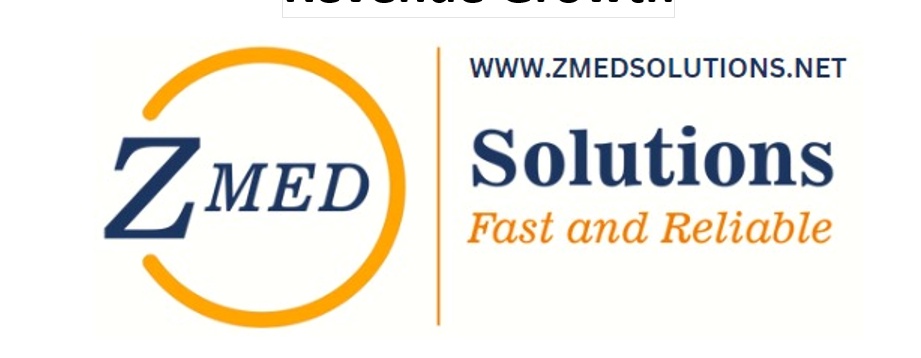In the realm of medical billing, understanding and adhering to HIPAA compliance standards are paramount. The process of unlocking HIPAA compliance secrets ensures not only the security of sensitive patient data but also the smooth functioning of medical billing operations. Let's delve into the intricacies of HIPAA compliance and how it forms the bedrock of secure medical billing practices.
Understanding HIPAA Compliance
HIPAA, the Health Insurance Portability and Accountability Act, was enacted in 1996 to safeguard patient information. Compliance with HIPAA regulations is mandatory for all healthcare providers, including medical billing entities. Failure to comply can result in severe penalties, including hefty fines and legal repercussions.
The Significance of HIPAA Compliance in Medical Billing
HIPAA compliance in medical billing serves as a safeguard against unauthorized access, theft, or misuse of patient data. It ensures the confidentiality, integrity, and availability of sensitive healthcare information throughout the billing process.
Key Components of HIPAA Compliance
Privacy Rule: The Privacy Rule establishes standards for protecting individuals' medical records and personal health information.
Security Rule: The Security Rule sets forth national standards for securing electronic protected health information (ePHI).
Breach Notification Rule: This rule requires covered entities to notify affected individuals, the Department of Health and Human Services (HHS), and, in some cases, the media in the event of a data breach.
Unlocking HIPAA Compliance Secrets
Achieving HIPAA compliance in medical billing involves meticulous attention to detail and adherence to established protocols. Here are the key steps to unlock HIPAA compliance secrets:
Conducting a Comprehensive Risk Assessment
Before embarking on the journey of HIPAA compliance, it's essential to conduct a thorough risk assessment. This involves identifying potential vulnerabilities, assessing risks to ePHI, and implementing measures to mitigate these risks effectively.
Implementing Robust Administrative Controls
Administrative controls encompass policies, procedures, and processes aimed at safeguarding patient data. These may include employee training programs, access control measures, and regular audits to ensure compliance with HIPAA regulations.
Deploying Technical Safeguards
Technical safeguards involve the use of technology to protect ePHI from unauthorized access or disclosure. Encryption, access controls, and secure authentication mechanisms are examples of technical safeguards employed to enhance data security in medical billing processes.
Enforcing Physical Security Measures
Physical security measures are designed to protect the physical environment where ePHI is stored or processed. This may include restricted access to data centers, surveillance systems, and safeguards against theft or unauthorized entry.
Maintaining Ongoing Compliance Monitoring
HIPAA compliance is not a one-time endeavor but an ongoing process that requires constant monitoring and evaluation. Regular audits, risk assessments, and updates to policies and procedures are essential to ensure continued compliance with evolving regulatory requirements.
The Benefits of HIPAA Compliance in Medical Billing
Enhanced Patient Trust and Confidentiality
By adhering to HIPAA compliance standards, medical billing entities foster trust and confidence among patients regarding the security and confidentiality of their personal health information.
Mitigation of Legal and Financial Risks
Compliance with HIPAA regulations helps mitigate the risk of legal liabilities, penalties, and financial losses associated with data breaches or non-compliance fines.
Streamlined Billing Processes
Implementing HIPAA-compliant practices streamlines the medical billing process, reducing errors, inefficiencies, and delays in claims processing.
Protection of Reputation and Brand Integrity
Maintaining HIPAA compliance safeguards the reputation and brand integrity of medical billing entities, demonstrating a commitment to ethical standards and patient privacy.
Key Market Player
Ready to optimize your medical billing and boost your revenue? Look no further.
Zmed Solutions LLC is your trusted partner in professional Medical Billing Services.
- Maximize Your Earnings
- Streamline Billing Processes
- Reduce Administrative Burden
Join hundreds of satisfied healthcare providers who have already elevated their revenue with our expert services. Don't miss out on what could be your practice's most profitable decision.
Schedule a Consultation Today!
Contact Us Now, and experience the difference. Your financial success starts here!
Bottom Line
Unlocking HIPAA compliance secrets is essential for ensuring the integrity, confidentiality, and security of patient data in medical billing processes. By understanding the significance of HIPAA compliance, implementing robust safeguards, and maintaining ongoing compliance monitoring, medical billing entities can navigate the complexities of healthcare regulations while upholding the highest standards of data security and patient confidentiality.
Frequently Asked Questions
What are the consequences of non-compliance with HIPAA regulations?
Non-compliance with HIPAA regulations can result in significant penalties, including fines ranging from thousands to millions of dollars, depending on the severity of the violation.
How often should medical billing entities conduct risk assessments for HIPAA compliance?
Medical billing entities should conduct risk assessments periodically, at least annually, and whenever significant changes occur in their operations or technology infrastructure.
What are some common challenges faced in achieving HIPAA compliance in medical billing?
Common challenges include balancing security measures with operational efficiency, staying abreast of evolving regulatory requirements, and ensuring compliance across third-party vendors and business associates.
What steps can medical billing entities take to address data breaches and security incidents effectively?
In the event of a data breach or security incident, medical billing entities should have established response protocols in place, including incident reporting procedures, containment measures, and communication strategies to notify affected parties promptly.
How does HIPAA compliance impact electronic health record (EHR) systems and interoperability?
HIPAA compliance requirements extend to electronic health record (EHR) systems, emphasizing the importance of secure data exchange and interoperability while maintaining patient privacy and confidentiality.
What role do business associates play in HIPAA compliance for medical billing entities?
Business associates, including third-party vendors and service providers, are required to adhere to HIPAA regulations through contractual agreements and are subject to similar compliance standards as covered entities.


No comments yet